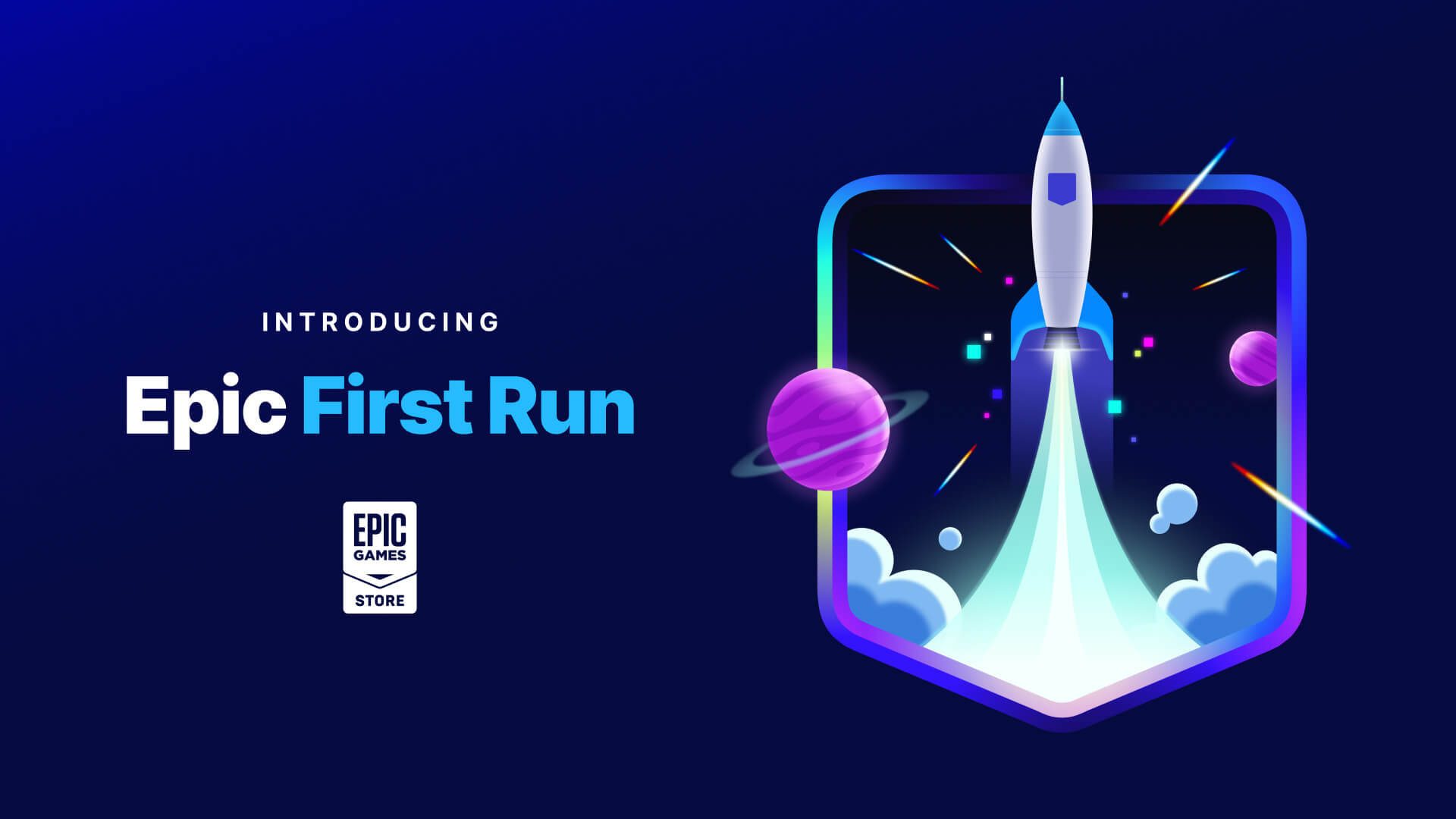Epic goes on the hunt for even more exclusives with a new program offering bigger payouts to smaller studios
Epic First Run is a new program that aims to attract new releases from smaller developers and publishers.

If you thought the era of the Epic Games Store exclusive was winding down, think again. Epic announced today a new program called Epic First Run that throws open the exclusivity doors to just about anyone with a new game.
The Epic Games Store has grown into a successful, major digital storefront since its launch in 2018 in large part due to exclusive game releases: Epic has used the massive financial success of Fortnite to pay publishers in advance to launch games on its storefront, and more to the point, not launch them on Steam, at least temporarily.
It's managed to attract some big names over the years, like Borderlands 3, Control, Hitman 3, and Kingdom Hearts, but it's been a ridiculously expensive endeavor, too: We learned in May 2021 that it had already spent more than $1 billion on exclusives. Despite not making money on them, Epic said in March 2023 that it was going to continue pursuing exclusives for its storefront, but would focus more on major releases, which had proven much more effective at attracting new users to EGS than smaller games.
The new Epic First Run program is a way to augment that strategy by bringing smaller studios back into the picture. Instead of negotiating up-front deals with developers and publishers for individual games, First Run grants them 100% of all net revenues earned during the first six months of a game's release on the Epic store in exchange for those six months being mostly exclusive. It's open to any developer or publisher with a game coming out on or after October 16 (when the program goes live) that hasn't previously been released through another third-party storefront or subscription service.
It's "mostly" exclusive because developers taking part in the First Run program can still offer their games for sale directly to gamers through their own storefront or website. They can also sell them through other third-party storefronts during the exclusivity period as long as they use Epic's "keyless distribution system" to do so. Digital storefronts that make use of that system (and can thus offer games for sale during their Epic exclusivity period) include GOG, Humble, Fanatical, Green Man Gaming, Genba, Nuuvem, and Exertis Ztorm—in other words, pretty much everyone except, well, you know.
An Epic rep confirmed that there's no hidden cap on the revenues earned during the six-month launch period: All net revenues, regardless of the amount, go to the developer and publisher. Once the six-month exclusivity period has expired, games will revert to Epic's standard revenue share of 88% for studios, 12% for Epic.
The rep also said that this program is "additive" to its existing exclusives programs, which will continue as Epic said it would in March, with individual deals for major releases like Assassin's Creed Mirage. What this does, then, is enable Epic to continue spending more strategically on major exclusives while opening the door to smaller games that might otherwise not be eligible for exclusivity, and the bonus payday it offers. The First Run program includes early access releases, so games can spend their entire exclusivity period in a pre-release state, and then launch into full release everywhere, including Steam.
The biggest gaming news, reviews and hardware deals
Keep up to date with the most important stories and the best deals, as picked by the PC Gamer team.
Epic exclusives have been contentious right from the start: The early days of the program included moves like the last-minute scoop of Metro Exodus, which left a bad taste, and while the severity of some of the reactions never made a whole lot of sense to me—it's literally just a different website—an awful lot of gamers just don't like the idea of buying games from stores other than Steam. The vitriol is not as furious today as it once was, but as you can see in a few of the responses to the announcement on Twitter, a level of unhappiness over Epic exclusives persists in some quarters. Despite that, it's more clear than ever that Epic has no intention of easing up, and that instead of fewer Epic Games Store exclusives in the future, we're much more likely to be seeing more.

Andy has been gaming on PCs from the very beginning, starting as a youngster with text adventures and primitive action games on a cassette-based TRS80. From there he graduated to the glory days of Sierra Online adventures and Microprose sims, ran a local BBS, learned how to build PCs, and developed a longstanding love of RPGs, immersive sims, and shooters. He began writing videogame news in 2007 for The Escapist and somehow managed to avoid getting fired until 2014, when he joined the storied ranks of PC Gamer. He covers all aspects of the industry, from new game announcements and patch notes to legal disputes, Twitch beefs, esports, and Henry Cavill. Lots of Henry Cavill.

